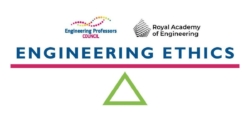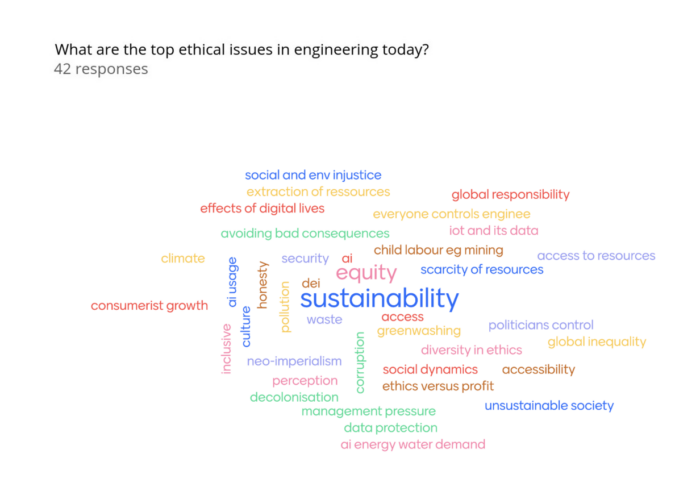James, where did your passion for this issue originate and how can the resources available for information literacy be put to use both by faculty and students?
We live in a time marked by an unprecedented deluge of information, where distinguishing reliable and valuable content has become increasingly difficult. My concern was to help engineering educators meet the critical challenge of fostering ethical behaviour in their students in this complex world. Students are in real need of an ethical compass to navigate this information overload, and the digital landscape in particular. They need to acquire what we call ‘information and digital literacy’, specifically, learning how to research, select and critically assess reliable data. This is both a skill and a practice.
For students, how does this skill relate to the engineering workplace?
From observing professional engineers, it’s clear they require comprehensive insights and data to resolve problems, complete projects, and foster innovation. This necessitates extensive research, encompassing case studies, standards, best practices, and examples to validate or refute their strategies. Engineering is a profession deeply rooted in the analysis of failures in order to prevent avoidable mistakes. As a result, critical and unbiased thinking is essential and all the more so in the current state of the information landscape. This is something Knovel specifically strives to improve for the communities we serve.
Knovel – a reference platform I’ve significantly contributed to – was initially built for practising engineers. Our early realisation was that the biggest obstacle for engineers in accessing the best available information wasn’t a lack of resources, but barriers such as insufficient digitalisation, technological hurdles, and ambiguous usage rights. Nowadays, the challenge has evolved: there’s an overload of online information, emerging yet unreliable sources like certain chatbots, and a persistently fragmented information landscape.
How is Knovel used in engineering education? Can you share some insights on how to make the most of it?
Knovel is distinguished by its extensive network of over 165 content partners worldwide, offering a breadth of trusted perspectives to meet the needs of a range of engineering information challenges. It’s an invaluable tool for students, especially those in project-based learning programs during their Undergraduate and Master’s studies. These students are on the cusp of facing real-world engineering challenges, and Knovel exposes them to the information practices of professional engineers.
The platform is adept at introducing students to the research methodologies and information sources that a practising engineer would utilise. It helps them understand how professionals in their field gather insights, evaluate information, and engage in the creative process of problem-solving. While Knovel includes accessible introductory content, it progressively delves into more advanced topics, helping students grasp the complexities of decision-making in engineering. This approach makes Knovel an ideal companion for students transitioning from academic study to professional engineering practice.
How is the tool used by educators?
For educators, the tool offers support starting in the foundational years of teaching, covering all aspects of project-based learning and beyond. It is also an efficient way for faculty to remain up-to-date with the latest information and data on key issues. Ultimately, it is educators who have the challenge of guiding students towards reputable, suitable, traceable information. In doing so, educators are helping students to understand that where they gather information, and how they use it, is in itself an ethical issue.
To learn more about the competence of information literacy check out our guidance article, Why information literacy is an ethical issue in engineering.
Knovel for Higher Education is an Elsevier product. As a publisher-neutral platform, Knovel helps engineering students explore foundational literature with interactive tools and data.
46% of EPC members already have access to Knovel. To brainstorm how you can make the best use of Knovel in your classroom, please contact: Susan Watson, susan.watson@elsevier.com.
Faculty and students can check their access to Knovel using their university email address at the following link: Account Verification – Knovel
Get Knovel to accelerate R&D, validate designs and prepare technical professionals. Innovate in record time with multidisciplinary knowledge you can trust: Knovel: Engineering innovation in record time
This blog is also available here.
Any views, thoughts, and opinions expressed herein are solely that of the author(s) and do not necessarily reflect the views, opinions, policies, or position of the Engineering Professors’ Council or the Toolkit sponsors and supporters.
 What is your initial reaction to using solar energy for oil and gas production? What might your initial reaction reveal to you about your own perspectives and values? What are the potential benefits and risks to implementing this technology?
What is your initial reaction to using solar energy for oil and gas production? What might your initial reaction reveal to you about your own perspectives and values? What are the potential benefits and risks to implementing this technology? What is your initial reaction to using solar energy for oil and gas production? What might your initial reaction reveal to you about your own perspectives and values? What are the potential benefits and risks to implementing this technology?
What is your initial reaction to using solar energy for oil and gas production? What might your initial reaction reveal to you about your own perspectives and values? What are the potential benefits and risks to implementing this technology?